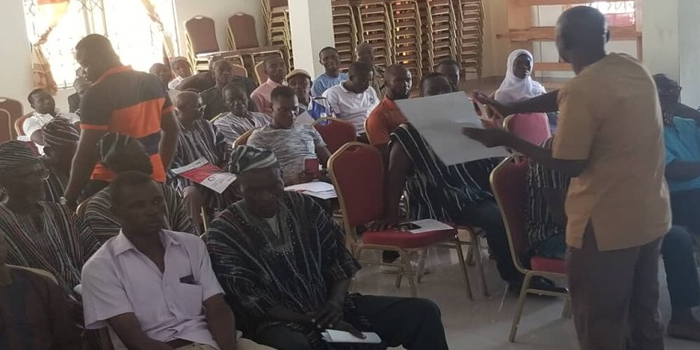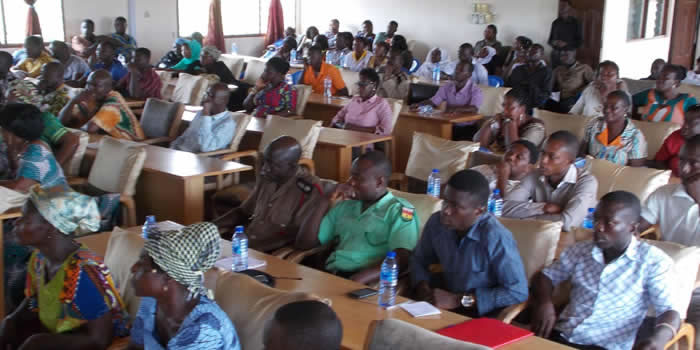

SOCIAL
Wassa East Local Council of Churches fights corruption
The head Pastor of the Christian Faith Church, Reverend John Agreve has stressed the commitment of the church towards the fight against corruption within the Wassa East district and the country at large.

Date Created : 4/5/2019 12:00:00 AM : Story Author : Justina Paaga
Rev Agreve who also doubles as a member of the Wassa East Council of Churches said the church had a huge responsibility in changing the mindset and attitude of its members.
He said this when the National Commission for Civic Education (NCCE) paid a working visit to the church to sensitize them on the "National Anti-Corruption Action Plan (NACAP) and the Accountability, Rule of law and Anti-Corruption programme (ARAP)" at Daboase in the Western region.
He pointed out that corrupt persons did not come from the moon, neither under the earth, but were people who attended church or mosque, adding that "many Christians pretend to be doing what is right when they are being watched by others, but do the opposite when they find themselves in their closets".
Rev. Agreve emphasized that no one could hide from God hence the need to put up a good attitude since the wages of sin was death and warned the congregation not to bring 'filthy money' into the church.
Mrs. Grace Buadu, the Wassa East District Director for the National Commission for Civic Education (NCCE), who sensitized the congregation on corruption, touched on the definition, causes, effect, and measures to control corruption in the country.
He defined corruption from the point of view of NACAP as the misuse of entrusted power for private gain, stressing that the practice manifested itself in various forms such as bribery, embezzlement, nepotism, extortion, kickbacks, looting, and fraud.
Mrs. Buadu noted that the causes of corruption in Ghana were many and varied and that prominent among them were institutional weaknesses, insufficient enforcement of laws, and poor ethical standards including a limited commitment to the values of integrity and self-discipline.
On the effects of corruption, he revealed that it basically hindered the development of the country, noting that it also leads to a high cost of infrastructural development due to kick-backs.
Mrs. Buadu pointed out that corruption could also lead to the destruction of merit-based competition as bribes were taken in return for employment and promotion.
The NCCE District Director said corruption led to the destruction of creativity as skilled and honest people remained unemployed and reduced attraction and respect to the country.










 facebook
facebook
 twitter
twitter
 Youtube
Youtube
 +233 593 831 280
+233 593 831 280 0800 430 430
0800 430 430 GPS: GE-231-4383
GPS: GE-231-4383 info@ghanadistricts.com
info@ghanadistricts.com Box GP1044, Accra, Ghana
Box GP1044, Accra, Ghana